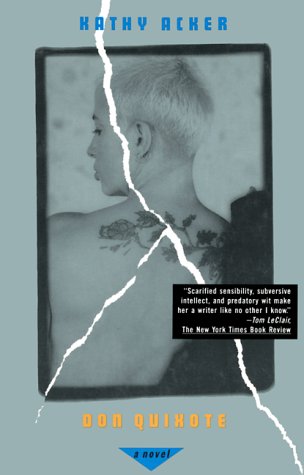What do you think?
Rate this book


208 pages, Paperback
First published January 1, 1986
“[We want] to wallow in the outside world. [We wallow] in all the hatred and filth that is outside. Nowadays, only the family stands against hatred and filth. On a political level, hatred is revolution. On a social level, it's chaos. On a personal level, self-destruction. You [exist] in revolution, chaos and self-destruction.”
“If a progressive ‘second revolution' still does not take place in England, then a conservative counter-revolution will; and in that case the movements toward Scottish, Welsh, and even Ulster independence will acquire added progressive impetus and lustre, as relatively left-wing causes saving themselves from central reaction.”
“My family protests the way I am. The fact that I am this way. I'm conscious that my refusal, my refusal upon refusal, my double mutiny that mutiny, this momentary attempt of mine to be a whole human, renders me liable to [my family's] disgusting penalties. Like any other rebel slave, perverse rebel, I resolve, now and forever, with total desperation, always to go to all lengths.” (Sancho Panza/St Simeon/the dog)
“I'm a mess. Since I objectively know who I am, this’s who I am. Since I'm a mess or have no control over any of my emotions, these emotions take me over. These emotions're so fierce, I must be controlled. This's why love's control for me.”
“In my vision, those who're enchanted, since they're no longer in touch with their own bodies, have no idea what their needs are...
“Since Jesus Christ made his disciples sleep on beds of thorns, religion is enchantment.”
“It is necessary to sing, that is to be mad, because otherwise You have to live with the straights, the compromises, the mealy-mouths, the reality-deniers, the laughter-killers. It is necessary to be mad, that is to sing, because it's not possible for a knight, or for anyone, to foray successfully against the owners of this world.”
“Language being a form of communication is a political occurrence...
“Language presupposes community. Therefore without you, nothing I say has any meaning. Without love or language, I do not exist. We who are freaks have only friendship.
“It is for you, freaks my loves, I am writing and it is about you...I'm talking about the self and others. Where are there possibilities of lives of feeling and touching?”
“This, my first and final dream, is not the dream of capitalism.”
‘This is a nuclear world so if you're not sci-fi, you're not canine.’
‘The world beyond time. The bloody outline of a head on every desk in the world. The bloody outline of alienated work. The bloody outline of foetuses. There's no more need to imagine. Blood is dripping down our fingertips while we're living dreams. When the living have woken wake will wake up, the veins of the night are metal. Her head is the foetuses of nuclear waste . . .’
'All she ever used to do was read books.'
'You're right,' the Leftist, who refused to drink in pubs, replied. 'She had no relations to other people. She didn't like them and she was aphasic.'
The Liberal: 'If she's evil, we must be evil too. No man's an island.'
'What about women?' asked the feminist, but no one listened to her. While the Leftist, who never listened to anyone but himself, answered, 'Books or any forms of culture're so dangerous, for they turn people mad, for instance Baudelaire or other pornographers, only our upper classes must be allowed to indulge in them.’
‘"What if," the bitch, (excuse me, dog), continues, "by 'love' you meant I was allowed to want you? Then we'd both be objects and subjects. Then sexual love would have to be the meeting-place of individual life and death."
‘Fucking, food, and dancing. This is the American Revolution.’
‘I can't give you any papers because I don't have an identity yet. I didn't go to Oxford or Cambridge and I'm not English. This's why your law says I have to stay in this inn overnight. As soon as you dub me a knight - by tomorrow morning - and I have a name, I'll be able to give you my papers.'
The receptionist, knowing that all women who're about to have abortions're crazy, assured the woman her abortion'ld be over by nighttime. 'I, myself,' the receptionist confided, 'used to be mad. I refused to be a woman the way I was supposed to he. I travelled all over the world, looking for trouble. I prostituted myself, ran a few drugs - nothing hard - , exposed my genitalia to strange men while picking their pockets, broke-and-entered, lied to the only men I loved, told the men I didn't love the truth that I could never love them, fucked one man after another while telling each man I was being faithful to him alone, fucked men over, for, by fucking me over, they had taught me how to fuck them over. Generally, I was a bitch.’
‘Then I learned the error of my ways. I retired . . . from myself. Here . . . this little job . . . I'm living off the income and property of others. Rather dead income and property. Like any good bourgeois,' ending her introduction. 'This place,' throwing open her hands, 'our sanctus sanitarium, is all of your place of safety. Here, we will save you. All of you who want to share your money with us.' The receptionist extended her arms. 'All night our nurses'll watch over you, and in the morning,' to Don Quixote, 'you'll be a night.' The receptionist asked the knight-to-be for her cash.’
‘I'm broke.'
'Why?'
'Why should I pay for an abortion? An abortion is nothing.'
'You must know that nothing's free.’